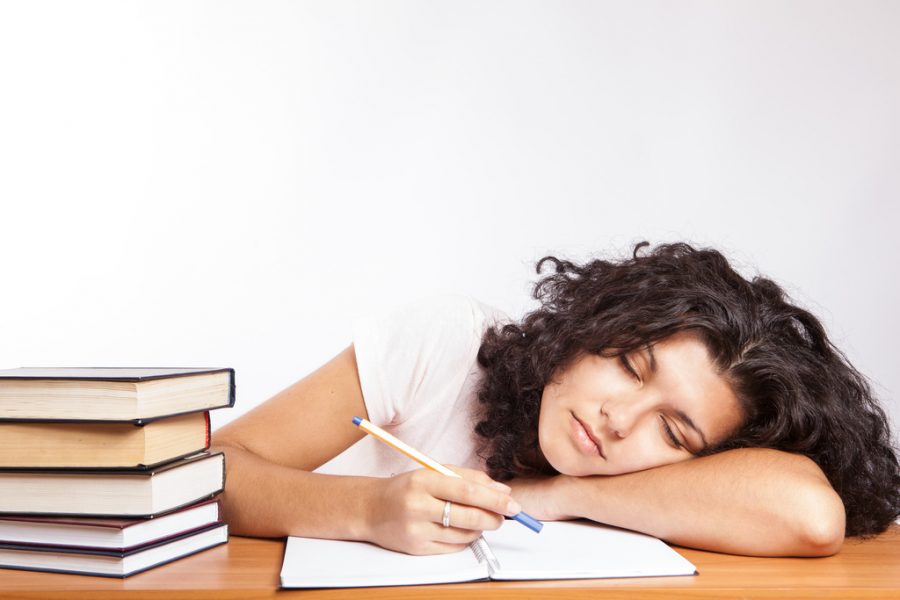Students suffer from sleep deprivation
Due to lack of sleep at night, students struggle to stay awake during class, making it harder to focus and learn. (Photo obtained via Google Images under a Creative Commons license)
December 16, 2016
Waking up in the morning can be the hardest obstacle a student has to overcome in their day. The task increases in difficulty with less sleep preceding that moment, as many students at McLean and across the nation can attest to.
From sitting in class to completing homework and taking part in athletics along with other extracurricular activities, students should look to the night as a time for a recharge so they can push full steam ahead against the daily onslaught that their high school lives bring them. Instead, more and more kids find themselves lacking one of life’s most essential things to keep them competent: a solid amount of sleep.
More and more students find themselves sleep deprived. In fact, according to a 2014 survey, over 90 percent of America’s high schoolers are chronically sleep deprived. A number of factors can be pointed to as why more and more teenagers find themselves in that predicament.
McLean presents unique challenges to its students, particularly upperclassmen, with challenging courses that take up a huge chunk of time away from what is done in school, with the availability of AP courses more prevalent at the school than most average institutions across the country. The stress from these courses also factors into how students get rest as they strangle themselves over their grades.
In addition, students’ prevalent use of social media and time with technology also factor into the quantity and quality of sleep.
Medical professionals point to an increase in sleep for many of teenagers in the United States. Over 87% fall below the expected eight to 10 hours, according to a poll conducted in 2006 by the National Sleep Foundation.
Students staying up to deal with their tasks often compound the problem. For example, working on homework late past a healthy bed time can eventually compound into problems with maintaining grades to the inability to focus in class.
“It causes you to wake up late and miss the bus,” said junior Shinbe Choi. “It has caused me to sleep in classes which [negatively affects] my GPA.”
There are several consequences of sleep deprivation, and many of them often worsen the situations in which students chose not to got to bed in the first place. Poorer grades are often a result, which is ironic when students stay up to deal with their school assignments.
Sometimes, students can attribute their lack of sleep to their lack of execution when it comes to dealing with all they must do, such as efficiently completing homework on top of other out of school activities.
“Most of the time, I don’t follow the plan that I make, which causes me to stay up later and sacrifice sleep in order to fit in other things that I previously didn’t plan,” said Choi. “It really takes a toll on life.”
Mental health is at risk the more students stay awake, according to Stanford Medicine.



